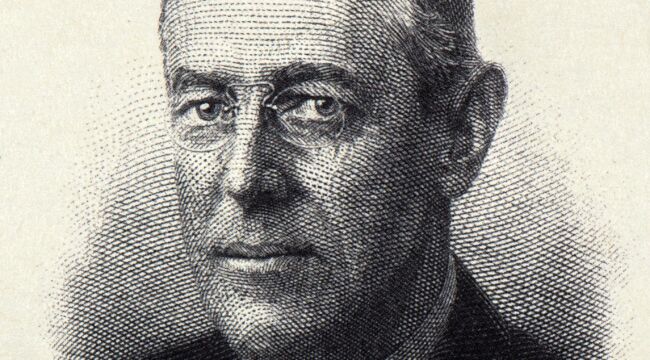Worst. President. Ever. And It Ain’t Biden…
Good morning from Jacksonville International Airport, where I’m waiting for my flight to Atlanta. And from there, I’ll fly all the way to Milan.
What a wonderful time it’s been here! I got to meet most of my colleagues, who are some of the best people I know.
We’ve closed the bar down in the Jekyll Island Resort Club every night. Brian Maher, the venerable editor of the Daily Reckoning, has been instrumental in that endeavor and excellent company to boot.
Sitting down with Jim Rickards, Matt Insley, Doug Hill, Zach Scheidt, Dan Amoss and Byron King for our Whisky (no “e,” thank you very much!) Bar was a fantastic experience. We’ll let you know as soon as we finish editing the film on that.
Our very own Miss Moneypenny, Lydia England, deserves all the credit in the world for organizing the event.
Dustin Weisbecker, Patrick McKelvey, Frank DeVechio, Jonathan Eaton, Amanda Stiltner, Brian Damario, Rick Barnard, Emily Graham, Chris Harris, Ben Gurtshaw, Marilyn Herbst and Zach Fowler all deserve immense gratitude for their hard work behind the scenes. Thank you!
If I missed anyone, please forgive the unintentional omission.
At this grand old hotel and resort, we got to absorb history.
And while I was mulling over the Fed, the history started to come together…
Dinner, Two Nights Ago
Paradigm’s very own Gandalf the Grey, Byron King, and his lovely wife, Barbara, are a treat to spend time with.
We shared a great dinner at Eighty Ocean Kitchen and Bar on the ocean side of Jekyll Island.
I remain amazed by the quality of conversation whenever I’m with Byron. And as you’d guess, Mrs. King is just as erudite and intelligent as her leading man. Oh, and she’s beautiful, too!
To top it off, we somehow wound up with an Italian native as our waiter. Being a native Tuscan, Alex ribbed me about choosing Piedmont over his impossibly beautiful region.
Byron and Barbara left after dessert while I stayed behind to imbibe more of the American ales with the rest of the Paradigm crew.
Snacks, Yesterday Afternoon
I went down to the Pantry to say goodbye to Matt Insley, who was rushing back to Maryland to see his newborn daughter. (Congrats to the whole Insley family!)
Luckily, I ran into Byron and Barbara and sat down with them for about 30 minutes.
And boy, did that clear up a few things.
I told Byron, “You know, we’re here talking about the Fed and everything that entails. But Woodrow Wilson was a mess. He also introduced the Fed, Prohibition, and dragged us into World War I!”
Byron looked at me seriously and added, “And don’t forget about the income tax!”
Temperance and the Tax (1913)
Of course! The Second Plank of the Communist Manifesto was introduced in 1913 as well.
How Wilson is ranked in the Top 10 of Presidents is beyond my comprehension.
Byron went on to explain the situation. I’ll paraphrase his wise words.
Well, Wilson was a supporter of the temperance movement.
But you have to realize something. At the time, the US government took up only 3% of GDP. Not 13%. Not 33%. Only 3%.
That 3% was funded this way: One-third came from tariffs. One-third came from selling postage stamps. And the final third came from taxes on alcohol.
But if you’re going to “temper” – or cut out altogether – your ability to tax alcohol, you’ve got to come up with something else.
That’s why the income tax was introduced.
An astute reader like you may be thinking, “Hang on, the income tax (1913) preceded Prohibition (1919) by six years. How could the income tax be a result of Prohibition?”
Great question.
The short answer is that the temperance movement cut into the revenues. Prohibition was merely the codification of what was already happening on the ground.
Government revenues from alcohol sales experienced a significant decline before Prohibition was introduced.
The temperance movement gained considerable momentum in the late 19th and early 20th centuries, driven by concerns about the social, moral, and health impacts of alcohol consumption.
As a result, many states and localities started implementing restrictions on alcohol sales and consumption. This led to a decrease in alcohol production and sales, subsequently reducing the revenue generated from alcohol-related taxes and fees.
Add to it that several states had already implemented their own prohibition laws before the 18th Amendment (Prohibition) was ratified. These state-level prohibition measures, often referred to as “dry laws,” further restricted or banned the sale and production of alcohol within their jurisdictions.
Of course, government revenues from alcohol sales declined even before the nationwide implementation of Prohibition.
The declining revenues from alcohol, coupled with the growing influence of the temperance movement, contributed to the overall push for Prohibition at the federal level.
But we’ll get to Prohibition later.
Let’s review Wilson’s enormous mistakes first.
The Federal Reserve Act (1913)
We’ve beaten this horse to death this week. But, after that fateful November 1910 meeting here on Jekyll Island, President Wilson signed what would become known as the Federal Reserve Act of 1913 with his four gold pens.
Entry Into World War I (1917)
Wilson campaigned for re-election in 1916 on a platform of maintaining neutrality and keeping the United States out of World War I. So much for that.
What contributed to his decision to enter the U.S. into the war just months after his re-election?
Let’s count the ways:
- German submarine warfare: Germany’s use of unrestricted submarine warfare, which targeted and sank both military and civilian ships, played a significant role in shifting public opinion and Wilson’s stance on the war. The sinking of the British passenger liner RMS Lusitania in 1915, resulting in the loss of American lives, had already strained U.S.-German relations.
- The Zimmermann Telegram: In early 1917, the British intercepted and decoded a secret telegram from German Foreign Minister Arthur Zimmermann to the German ambassador in Mexico. The telegram proposed a military alliance between Germany and Mexico, with the promise of supporting Mexico in reclaiming lost territories from the United States. The revelation of this telegram further fueled anti-German sentiment and outraged the American public.
- Public opinion and pressure: While Wilson campaigned on a platform of neutrality, there was a growing segment of the American population, particularly among certain influential groups and the media, that supported U.S. intervention in the war. Over time, public sentiment shifted, and there was increasing pressure on Wilson to take a more active role in the conflict.
- Economic interests: The war presented economic opportunities for the United States. As the conflict continued, American businesses saw profits from supplying goods to the Allied powers. Wilson likely recognized the potential economic benefits of U.S. involvement in the war, as it could boost the American economy and position the country as a major player on the world stage.
- Wilson’s naive idealism: Wilson believed that the United States had a unique opportunity to shape the post-war world and establish a lasting peace. He developed his vision, known as the Fourteen Points, which outlined principles for peace. This included self-determination for nations and the establishment of a League of Nations. Wilson saw U.S. intervention in the war as necessary to achieve his vision and ensure a just and lasting peace.
Whether Wilson walked us into the war or he pushed us, is inconclusive. Ultimately, it was a combination of factors that got us into the conflict.
Prohibition (1919)
My grandfather was born in 1919. I’m so glad I wasn’t around for this tomfoolery.
During his presidency, Wilson publicly expressed his support for Prohibition. He saw it as a moral duty and an opportunity to promote social order and increase productivity, particularly during World War I. Wilson believed that banning alcohol would help conserve resources, maintain discipline among the troops, and bolster the war effort.
While Wilson didn’t actively push for the amendment himself, his endorsement and influence helped sway public opinion and create political pressure on state legislatures to ratify the amendment.
The ratification of the 18th Amendment in 1919, which prohibited the manufacture, sale, and transportation of alcoholic beverages, Prohibition became the law of the land.
Of course, Prohibition did not go as planned, leading to unintended consequences such as the rise of illegal activities and the growth of organized crime.
Thank heavens the ban on alcohol was eventually repealed with the ratification of the 21st Amendment in 1933.
Wrap Up
How Woodrow Wilson is considered anything other than a complete screw-up is beyond my comprehension.
He was a warmongering, income-taxing, central banking monster. And he deprived the citizenry of a stiff drink as he did all this!
Oh, the shame of it all.
The Federal Reserve vexes us daily. The income tax redistributes your hard-earned cash to someone else every April 15th.
And you can certainly argue America’s interventionist, itchy trigger finger is a direct descendant of Wilson’s damn fool crusading.
At least, we can have a martini. Perhaps we can reverse some of his other awful decisions one day.
Let me know what you think by emailing me here.
See you next week!



Comments: